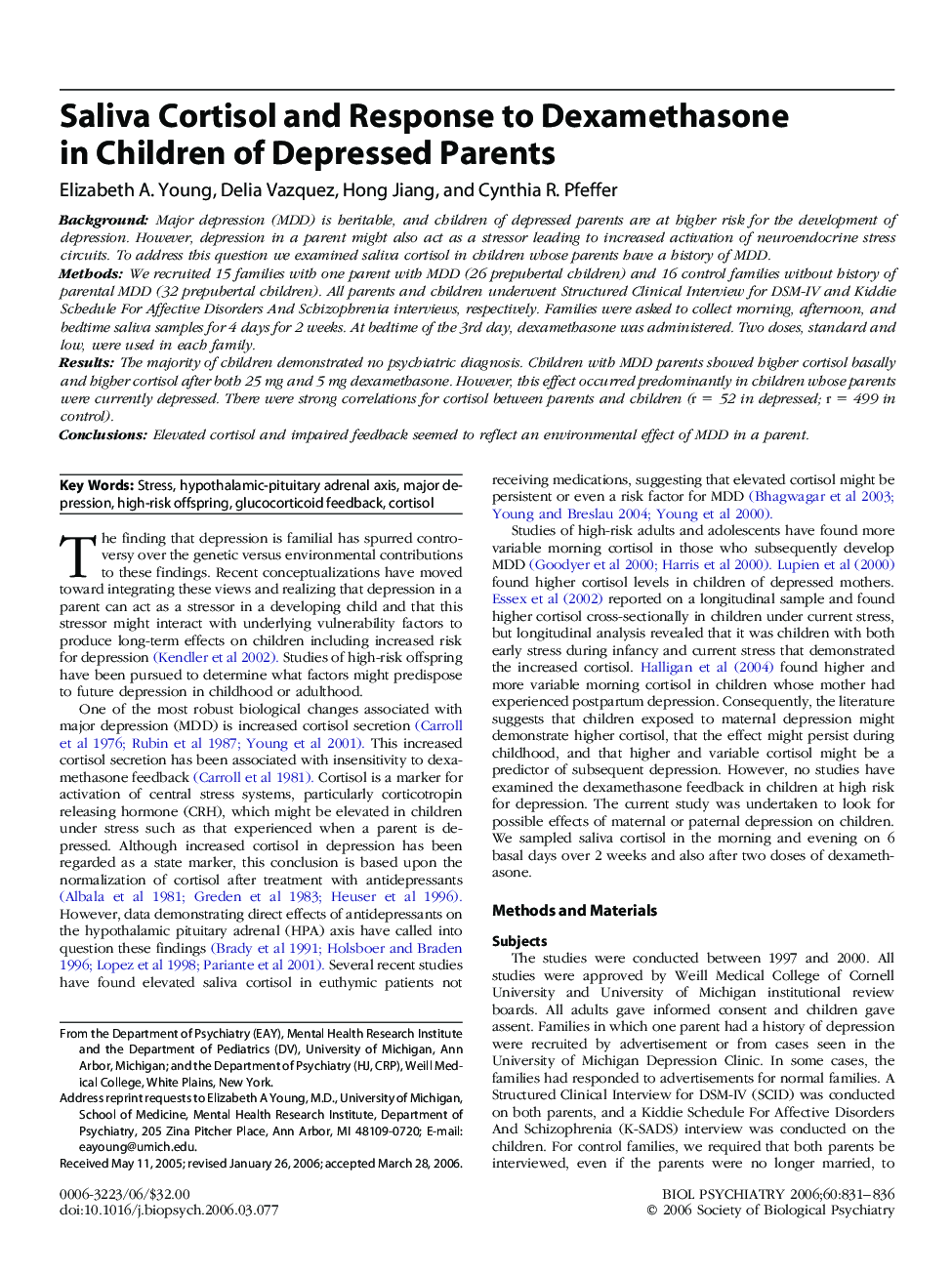| Article ID | Journal | Published Year | Pages | File Type |
|---|---|---|---|---|
| 4181120 | Biological Psychiatry | 2006 | 6 Pages |
BackgroundMajor depression (MDD) is heritable, and children of depressed parents are at higher risk for the development of depression. However, depression in a parent might also act as a stressor leading to increased activation of neuroendocrine stress circuits. To address this question we examined saliva cortisol in children whose parents have a history of MDD.MethodsWe recruited 15 families with one parent with MDD (26 prepubertal children) and 16 control families without history of parental MDD (32 prepubertal children). All parents and children underwent Structured Clinical Interview for DSM-IV and Kiddie Schedule For Affective Disorders And Schizophrenia interviews, respectively. Families were asked to collect morning, afternoon, and bedtime saliva samples for 4 days for 2 weeks. At bedtime of the 3rd day, dexamethasone was administered. Two doses, standard and low, were used in each family.ResultsThe majority of children demonstrated no psychiatric diagnosis. Children with MDD parents showed higher cortisol basally and higher cortisol after both 25 mg and 5 mg dexamethasone. However, this effect occurred predominantly in children whose parents were currently depressed. There were strong correlations for cortisol between parents and children (r = 52 in depressed; r = 499 in control).ConclusionsElevated cortisol and impaired feedback seemed to reflect an environmental effect of MDD in a parent.
